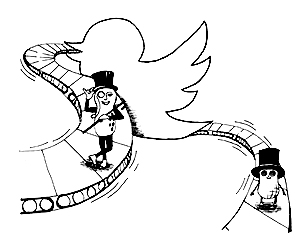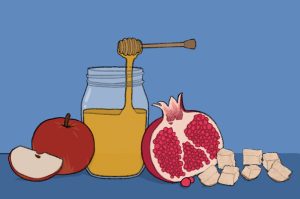Brands shouldn’t be driven by memes
February 20, 2020
For years, I’ve tried ignoring brands’ attempts at keeping their image up to date. But with “Baby Nut,” I think brands have to stop fixating on social media.
Baby Nut is the new image of Planters peanuts. After the tragic “death” of their previous mascot, Mr. Peanut, the company brought back the character as a baby, much in the style of baby Yoda from “The Mandalorian” or Marvel’s baby Groot.
The point of brands is to build a reputation, which companies can use to advertise their product and hopefully keep customers for the long term.
In the past, this meant creating recognizable characters and slogans so people could know at a glance which company or product was being promoted.
However, as time goes by, brands have to think of new ideas to stay relevant or to keep up with their aging demographics.
This is where Baby Nut comes in. Over the past two decades, people have become critical of consumerism and false advertising.
In response, brands had to get more and more edgy to appear genuine to their audiences.
On Twitter, this went from somewhat outdated memes, to roasts of other brands, to brands like Sunny D, who tweeted “I can’t do this anymore,” Feb. 3, 2019.
Eventually, we got to a Super Bowl ad campaign where old mascots are literally killed off and replaced with new ones based on current TV shows.
Even without the cringy memes, this trend is bad.
Although the person in charge of Sunny D’s social media account may actually have depression, coming from the Twitter profile of a company, it comes off as shallow and demeaning.
The reason tweets about personal problems often go viral is because they can be humanizing and relatable.
Whether to make a joke or simply to share our problems, we can use Twitter to form a digital, although genuine, connection with other users.
Brands don’t have this luxury.
Most of us have grown up with McDonald’s, Wendy’s and Planters, and might be very fond of them, but they’re still brands.
They are corporations run by rich people who probably care more about our money than about us.
Trying to imitate Twitter users by tweeting “I can’t do this anymore” on behalf of Sunny D or how much corporate rivals suck has nothing to do with connection and everything to do with shock value, which gets old quick.
Every iteration is the same: some Twitter brand profile tweets something like “@McDonaldsCorp when the tweets are as broken as the ice cream machines,” everyone loses their mind, then continues on with their day.
Shock value relies on doing new things each time to amuse observers, so brands have to get crazier each year to capture the same surprise. Eventually, it gets out of control.
This is how we got to Planters creating a baby peanut as their new mascot, who chose to tweet on Feb. 6, “Gotta be in bed by 6 so I can wake up at 3am to scream (: .”
To their credit, killing off an old mascot by having him crash off of a cliff in an act of heroism is quite novel.
But eventually the novelty will wear off and Planters will have to go back to standard brand behavior.
However, I fear what will be more likely is that the death of Mr. Peanut will spark a wave of brands constantly killing off their mascots every time a new sensation appears on social media.
One can imagine the problem getting so out of hand that people can’t even remember which mascot belongs to which brand.
Acting like normal people or copying the trends of current memes to sell a brand are both demeaning and probably not that effective in the long term, so stop.







